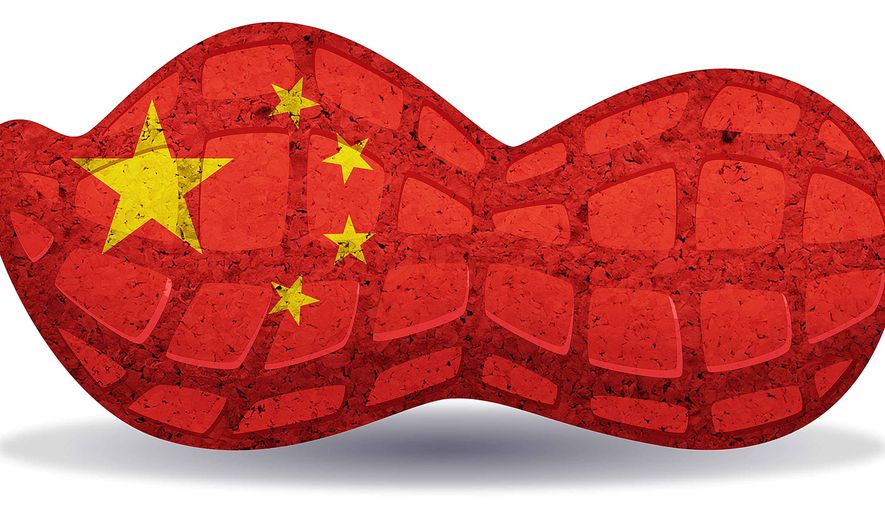OPINION:
Jimmy Carter should stick to building houses for the homeless. He’s reportedly good at it.
Unfortunately, our most ineffectual Cold War president occasionally feels compelled to expound on foreign policy as he did in a New Year’s Day Washington Post op-ed on China. Mr. Carter believes that we are being too tough on China in placing tariffs on Chinese exports and that our confrontational stance with Beijing over freedom of navigation in the South China Sea risks a new cold war or a catastrophic hot war.
It is interesting that his piece was published shortly after it was revealed that Chinese Rear Adm. Luo Yuan recently gave a speech proposing the sinking of two American aircraft carriers and the subsequent deaths of thousands of U.S. sailors as a way of intimidating the casualty-adverse Americans from interfering with China’s right to be the predominate power in the Western Pacific. Luo Yuan has been a notable Chinese hawk for years, and he might be discounted if it were not for the fact that mainstream Chinese military writers have been increasingly bellicose toward the United States, and Chinese government-sponsored government endorsed civilian media outlets frequently refer to the United States as “the adversary.” Despite all this, Mr. Carter primarily blames America for increasing tensions.
As president, Mr. Carter did yeoman’s work in crafting the Camp David accords, but that is about it for foreign policy accomplishments. In the op-ed, Mr. Carter takes credit for normalizing relations with China while ignoring the courageous and groundbreaking work of Presidents Nixon and Ford as well as Henry Kissinger. In baseball terms, he got a “save” for finishing an ongoing process.
For Mr. Carter to claim a win in normalizing relations is slightly akin to Charles Lindbergh claiming to have invented aviation without mentioning the Wright brothers. Mr. Carter is apparently hoping that 40 years of abysmal U.S. public education has caused the public to forget that he presided over some of the most humiliating American foreign policy debacles of the 20th century. These include the Iran hostage crisis, the temporary loss of Nicaragua to Communist insurgents, and the Mariel boat lift not to mention domestic economic stagflation. Jimmy Carter giving advice on foreign policy has about as much credibility as Custer writing articles on Indian fighting. Fortunately for Custer, the Indians killed him before he could embarrass himself in print.
For decades, the Chinese have ignored the protestations of successive American presidents regarding their predatory trade practices in pricing, intellectual property and industrial espionage. President Trump’s actions in opening a trade war, seems to have finally gained their attention.
Some of Mr. Carter’s suggestions for making nice to the Chinese are patently bizarre. He wants us to cooperate with Beijing in developing Africa. It has apparently eluded him that the Chinese idea of development is to exploit their erstwhile African partners in ways that would make the 19th century British, French and Belgian colonialists blush.
Mr. Carter also wants us to partner with China on climate change. The Trump administration pullout from the Paris accords gained us no friends in the “progressive” camp, but at least we have been honest in refusing to participate in this unenforceable piece of expensive progressive self-promotion. China has cynically stayed within the accords’ framework — which it won’t abide by — while remaining one of the world’s worst polluters. Foreign diplomats have to wear surgical masks to commute to work in China’s capital.
No one wants a war — hot or cold — with China, but what Sinophiles such as Mr. Carter fail to realize is that China acts more like a spoiled child in international affairs than a responsible nation-state. Like any child, China needs boundaries. The Trump administration has provided clear limits in the areas of trade and Chinese adventurism on the high seas. That does not constitute cold war confrontation, but it does mean drawing clear lines regarding acceptable international conduct.
Perhaps Mr. Carter’s most curious recommendation is that we stop lecturing the Chinese on democracy and human rights. This occurs at a time when the Trump administration is being pilloried by human rights and democracy groups for being too easy on China and North Korea on both of these issues. Perhaps they aren’t delivering newspapers at Mr. Carter’s present home-building site.
At the risk of sounding ageist, there comes a time in life when the family has to take the car keys away. In Mr. Carter’s case, the family should take away his crayons while they are at it.
• Gary Anderson lectures on Alternative Analysis at the George Washington University’s Elliott School for International Affairs.




Please read our comment policy before commenting.